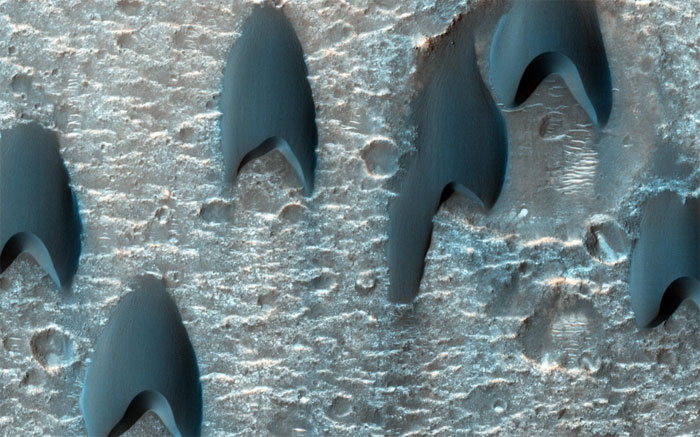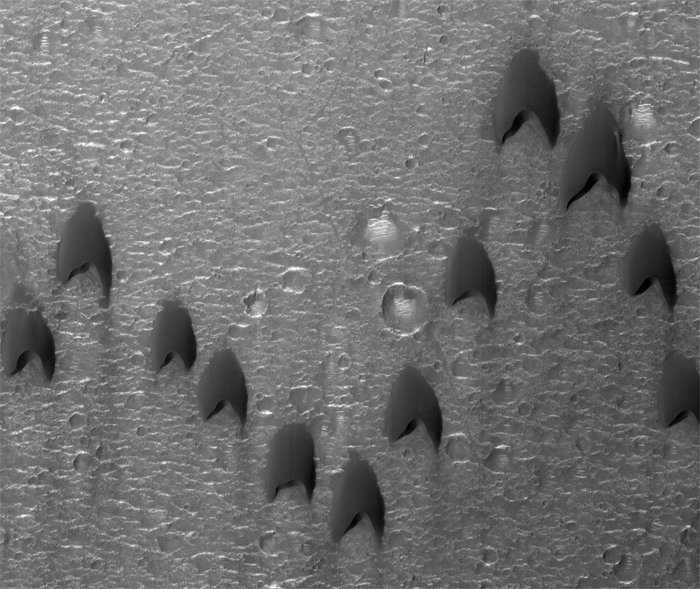.

Martian Dunes Flying in Formation
Migratory birds and military aircraft often fly in a V-shaped formation. The “V” formation greatly boosts the efficiency and range of flying birds, because all except the first fly in the upward motion of air -- called upwash -- from the wingtip vortices of the bird ahead.
In this image of a dune field on Mars in a large crater near Mawrth Vallis, some of the dunes appear to be in a V-shaped formation. For dune fields, the spacing of individual dunes is a function of sand supply, wind speed, and topography.
This image was acquired by the HiRISE camera aboard NASA's Mars Reconnaissance Orbiter on Dec. 30, 2013. The University of Arizona, Tucson, operates the HiRISE camera, which was built by Ball Aerospace & Technologies Corp., Boulder, Colo. NASA's Jet Propulsion Laboratory, a division of the California Institute of Technology in Pasadena, manages the Mars Reconnaissance Orbiter Project for the NASA Science Mission Directorate, Washington.
.

Dunes Flying in Formation
.
Migratory birds and military aircraft—like during World War II—often fly in a V-shaped formation. The “V” formation greatly boosts the efficiency and range of flying birds, because all except the first fly in the upward motion of air--called upwash--from the wingtip vortices of the bird ahead.
In this image of a dune field in a large crater near Mawrth Vallis, some of the dunes appear to be in formation. For dune fields, the spacing of individual dunes is a function of sand supply, wind speed, and topography.
Quelle: NASA
5758 Views
